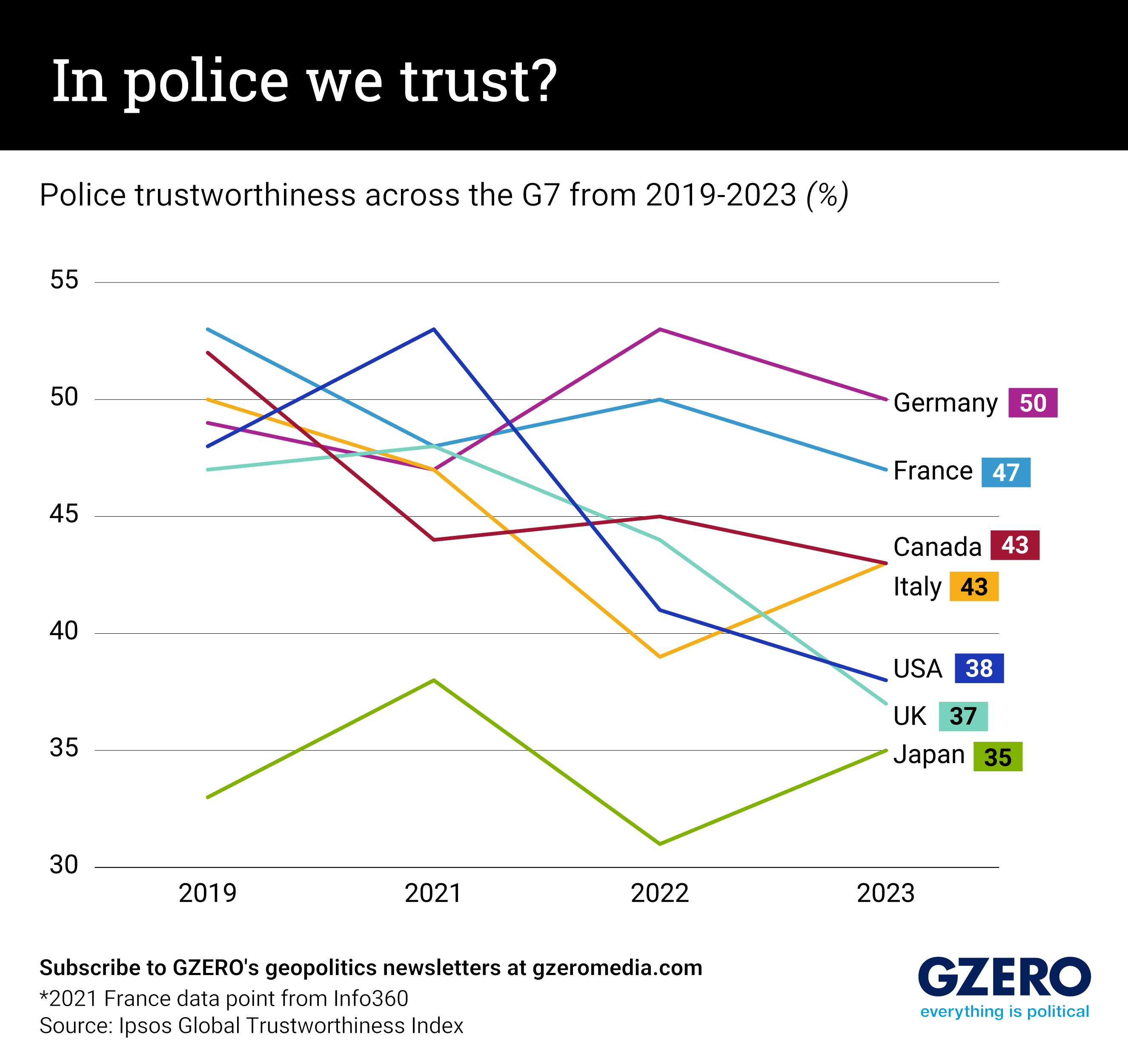August 01, 2024
Cops worldwide have come under intense scrutiny over the use of police violence, exacerbating a decline in public trust. This made us wonder: How do our men and women in blue fare compared to the rest of the G7 when it comes to public confidence? The answer: not well.
IPSOS’s annual Global Trustworthiness Index asks this very question to tens of thousands of adults across 31 countries, rating their trust in police on a scale of 1-5.
It found that since the end of the pandemic, trust has been on the decline. In the US, UK, Canada, Italy, and France, civilian trust in their police has dropped by at least 5% since 2019 due to alleged police misconduct, use of excessive force, and systemic racism.
The US and UK have seen the largest deterioration in trust, as accusations of institutional racism, homophobia, and misogyny stack up amid a string of high-profile incidents of police violence – such as the murders of George Floyd and Sarah Everard.
Not all trust is lost. Some countries, like Germany, are working very hard to rebuild trust – Deutschland recently established its first independent federal police commissioner focused on addressing police misconduct and discrimination.
More For You
- YouTube
At the 2026 Munich Security Conference, entrepreneur and Project Liberty founder Frank McCourt makes the case that the internet, and the AI systems rapidly reshaping it, must be redesigned to serve people, not platforms.
Most Popular
- YouTube
At the 62nd Munich Security Conference, Parag Khanna, founder and CEO of AlphaGeo, says globalization isn't dead, it's evolving. Speaking with GZERO’s Tony Maciulis, he explains that countries are forming flexible alliances that expand and shrink based on their interests. “You’d rather be in the tent...if it suits your interest than not in it,” Khanna notes, highlighting how the US, Europe, and Asia are adapting to shifting global priorities.
- YouTube
Sovereignty has become one of the most powerful, and least defined, words in tech policy. At the 2026 Munich Security Conference, SAP global head of government affairs, Wolfgang Dierker, explains why governments and enterprise customers are demanding more control over their data, cloud infrastructure, and AI systems amid rising geopolitical uncertainty.
- YouTube
On the sidelines of the 2026 Munich Security Conference, Annemarie Hou, Executive Director of the United Nations Office of Partnerships, joined Tony Maciulis to discuss the power of women leaders in global decision-making.
© 2025 GZERO Media. All Rights Reserved | A Eurasia Group media company.
